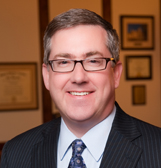May 23, 2013
General Faculty Resolution on Faculty and Unclassified Professional Salaries

On Tuesday, I received the Kansas State University General Faculty Resolution on Faculty and Unclassified Professional Salaries from Faculty Senate President Julia Keen. I appreciate and share the passion and concerns expressed by many of you through this resolution.
The resolution has attracted the attention of the Kansas Board of Regents, who stated support for competitive salaries. As Provost April Mason and I outlined in a letter to campus last week, I will soon share a three-year-compensation plan for faculty and staff salaries, following the completion of the 2013 Kansas legislative session and a first reading on June 6 by the Kansas Board of Regents of our tuition and fees proposal. This plan was developed based on recommendations from the Faculty Compensation Task Force and additional feedback from them last month. We fully anticipated having this plan out to the university community in April, but with continued discussions on higher education funding in Topeka, we delayed providing this until the Legislature has finished deliberations.
Several considerations are key to this compensation plan:
- First, we heard you clearly articulate the need to provide merit increases to recognize outstanding work by our faculty and staff.
- Second, we need to add new tenure-track faculty lines to accommodate increasing numbers of undergraduate and graduate students.
- Third, we need to increase the promotion increments for faculty members as they successfully move up the faculty ranks.
- Fourth, we must maintain successful long-term initiatives such as the Professorial Performance Awards.
- Fifth, we will not make progress on faculty and staff salaries if we take budget cuts from the State of Kansas.
- Finally, we need to measure our progress annually and publicly by faculty rank against our peers as laid out in K-State 2025.
The resolution included a moratorium on upper administrative pay increases and creation of new administrative positions. It would be irresponsible on my part to adopt such a direction as policy. We must maintain our flexibility to do what’s in the best interests of the university with regard to any specific positions or personnel decisions as we move forward with K-State 2025.
Warren Staley, retired CEO of Cargill and K-State alumnus, spoke at two graduation ceremonies last weekend. At the graduate school commencement, he said, “A key characteristic of a leader is not what he or she says, but what they do." I appreciate and fully support the need to increase faculty and staff compensation, including finding ways to address the concerns of classified staff.
Together we committed to improving compensation by including it in the K-State 2025 visionary plan – we cannot achieve the excellence to which we aspire without it. I look forward to working together with all of you in the coming year to achieve our shared goals to advance Kansas State University.
Regards,
Kirk
